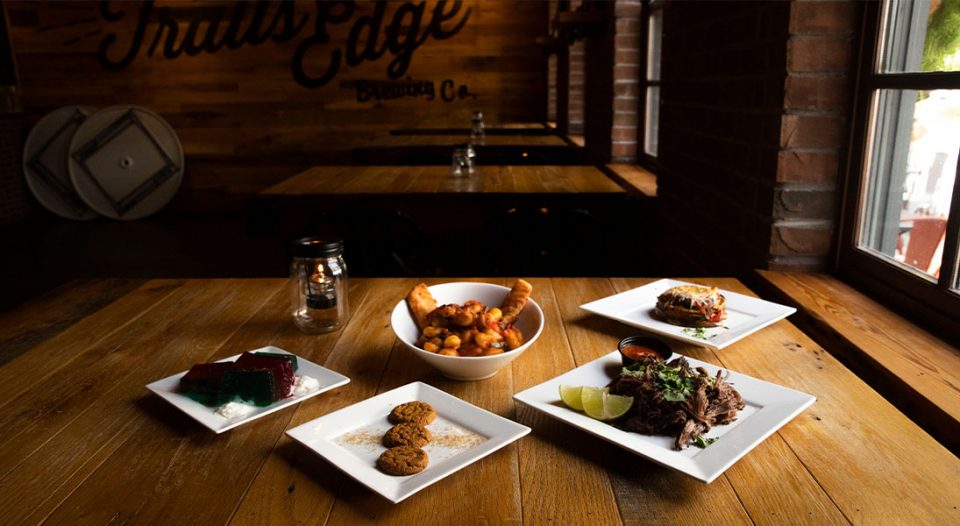Editor’s note: This August, we invited ELCA synod bishops to send us their favorite food and faith stories. This story is a sidebar for our November lead feature, “Taste and see.”
Love in a glass
My love of root beer floats goes back to my childhood. Whenever I was sick, my maternal grandfather would make us what he called “a brown cow”: several scoops of vanilla ice cream in a large mug, topped with foamy root beer. It wasn’t your typical get-well meal, but it lifted my spirits and felt like love in a glass.
Since then, root beer floats have been my go-to beverage to mark a variety of occasions. In our synod office, we get out the ice cream and root beer for birthdays, for down days that need a pick-me-up or just to celebrate being a team working together.
This year, even though the synod office was closed due to COVID-19, the staff gave me a six-pack of root beer and a half gallon of vanilla ice cream for my birthday—leaving it on my porch and texting me a notice that it was there, so I could claim it before the ice cream melted. This simple treat still tastes like love in a glass. —Tracie L. Bartholomew, bishop, New Jersey Synod
Granny’s sauerbraten
We all called her “Granny.” She was my father’s mother, and she and my grandfather lived a city block away from St. Philip, the church we attended as a family. Often on Sunday afternoons you could find us at Granny and Poppy’s for Sunday dinner.
You could find us there most holidays as well, 20 or more gathered around the dining room table and the supplemental “kids’ table.” Granny was the absolute head of her kitchen and did most of the work preparing a sauerbraten that would become the centerpiece of good conversation. Mealtime was a chance to discuss politics, work, the joys of raising children and all those things that bind a family together.
It was from this family, too, that I first learned about faith. We would easily move from a meal around the Lord’s table to a meal around our table—and love, God’s and ours for one another, embraced it all. —Paul Egensteiner, bishop, Metropolitan New York Synod
A meal to remember
I grew up at Ascension Lutheran Church in Colorado Springs, Colo. In the early 70s, the congregation sponsored refugee families, helping them resettle in the area. My family worked closely with a family from Vietnam, and, in an expression of gratitude, they invited us over to dinner one night.
I was very nervous about going because I was an extremely picky eater. (I was a great frustration to my parents!) I didn’t want to offend anyone, but I wasn’t sure I could force myself to eat “strange” food.
I don’t remember the name of the dish this family made, but I do remember not only being able to eat it but actually liking it. This was the first time I really connected food with hospitality and began to understand why it was so important for Jesus to share meals in the Gospels. —Susan Candea, bishop, Central States Synod
Home at the table
I didn’t realize how much food has shaped my identity until my family and I immigrated to the United States. My first call took me from Germany to the far northeast corner of South Dakota, where lutefisk and lefse were readily available at the local drive-through but I wasn’t able to find the ingredients I needed to prepare a traditional German Christmas dinner. After eating lutefisk and lefse alongside my parishioners, I began my quest to host a German Christmas dinner for them.
Twenty-one years later, I happily invite three or 300 people to our table for Christmas dinner. I place an order with a nearby Hutterite colony for a fattened goose. Only a certain brand of flour is deemed acceptable for my homemade spaetzle and soft, warm bread. My husband raises red cabbage in our garden. And if I am really lucky, one of my dairy farmers brings us a pint jar of real cream.
Our children have learned how to make these family dishes and love gathering around the table to celebrate community, family and how to make a home away from home.
Last year, the synod staff and I prepared a traditional German Christmas dinner for 100 people to raise funds for Lutherans Outdoors in South Dakota. Just as lutefisk and lefse may not be everyone’s favorite, goose and spiced red cabbage aren’t either, but one thing is certain—we’ll never forget that dinner. Some call it team-building. I call it sharing my life for the sake of building community. All are welcome at the table. —Constanze Hagmaier, bishop,
South Dakota Synod
Jesus and cookies
Every year, before my students preached their first sermons, my wife Cathy baked oatmeal scotchies, which I gave to them as a token of God’s love and our prayers.
When we were called to the office of bishop, Cathy baked these cookies and worked with a military chaplain and our congregations to send them to his troops on a military base. Visiting that base, I learned that the only sugar soldiers in basic training are allowed are cookies from the chaplain after church. It was so fun to be the bishop of the church that sent the cookies.
One soldier explained that the only thing that got him through boot camp was Jesus and these cookies. After all, Jesus said, “Whoever gives even a cup of cold water to one of these little ones in the name of a disciple—truly I tell you, none of these will lose their reward” (Matthew 10:42).
This is equally true for oatmeal scotchies. The reward is the faith that comes from sharing Jesus’ love. —Craig Alan Satterlee, bishop, North/West Lower Michigan Synod



